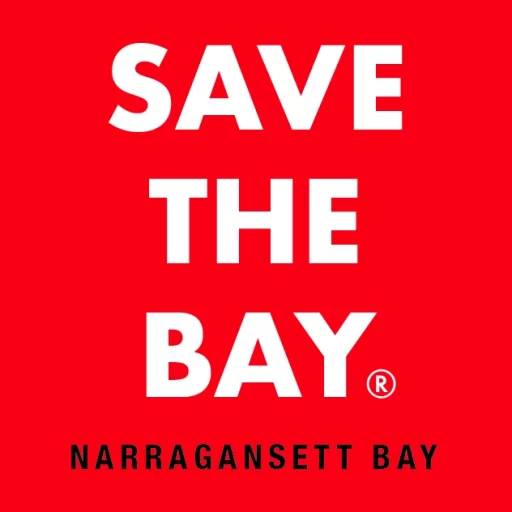50 Ways We’ve Saved The Bay: Igniting Mandatory Statewide Recycling
By Laura Kain and Cindy Sabato

Trash was piling up in the Ocean State. By 1985, only 13 of Rhode Island’s 44 landfills were still taking trash—the rest were full. And the largest one, in Johnston, had no more than four to six years left as a viable facility. “Solid waste disposal is a matter of critical concern. We generate over 3,000 tons of solid waste every day, and we’re running out of places to put it,” said Bob Bendick, then-director of Rhode Island’s Department of Environmental Management. As the state contemplated burning the problem, Save The Bay and other environmental groups pushed for a strong recycling solution. In doing so, we blazed a trail that made Rhode Island the first state to implement mandatory recycling and a national leader in environmental responsibility.
Incineration Not The Answer
We’d been advocating for a recycling program, but a 1980s proposal for a $200+ million, energy-producing, mega-incinerator at Quonset Point stoked our effort. The proposal by Alabama-based Blount Energy Resource Corporation “touched off a heated controversy within Rhode Island’s business, political and environmental communities. Fanning the flames have been a slew of conjecture and misinformation, procedural mistakes and the emotional response of the natives of North Kingstown,” according to a January 1985 Save The Bay newsletter.

For two years, Save The Bay and others, including Ecology Action, R.I. Lung Association, Conservation Law Foundation, and Aquidneck Island Ecology, argued that incinerators were a short-term solution with long-term negative effects. We were concerned its once-through cooling system would risk fish, shellfish, and plankton kills, and about the toxicity of chlorine to be used in the incineration process. Siting concerns included pipe-laying, dredging and dredge material. And of course, we were concerned about the hazardous emissions and carcinogens that could enter the environment. And although Rhode Island had a fund to help establish localized recycling programs, we knew full well that a mega-incinerator would extinguish any possibility of a recycling solution.
A Complete Waste Management Program Must Include Recycling
A statewide recycling program, we argued, must be implemented, if nothing else, to complement an incinerator and other plans in the works, and it must be implemented before incineration began. Without it, “Rhode Islanders will be spending $226 million for management of their solid waste…but…will not be getting a complete solid waste management plan,” said Trudy Coxe, Save The Bay’s executive director at the time. Removing glass and metal from the incineration process would reduce the risk of hazardous chemical emissions, and recycling them would cost far less than burning them.
While opposing the mega-incinerator, we simultaneously built a case for statewide recycling. We looked at successful recycling programs in New Jersey, Michigan, Connecticut and elsewhere. We talked with professionals in the recycling industry to learn about strides made in recycling in recent years. We hosted public forums and recycling workshops, wrote press releases, held meetings with decision-makers, and sent letters to the governor and all members of the state legislature. Our efforts gained steam when a joint study by the Department of Environmental Management and Brown University supported the concept of separating recyclables before incineration of trash. And in his State of the State Address, Gov. Edward DiPrete’s supported our effort by setting a goal that 15 percent of all Rhode Island’s solid waste be recycled.
The R.I. Recycling Act of 1986
Our work paid off. In spring 1986, a R.I. Special House Commission instituted mandatory recycling and rejected the mega-incinerator proposal in favor of three smaller incinerators that, in fact, never materialized. In 1992, Rhode Island enacted a ban on incinerators, and until 2015 in Florida, an incinerator had not been built in the U.S. in more than 20 years. Decades later, our assertions that incineration would undermine recycling were confirmed when a 2011 study found that 65% of the material burned at Connecticut’s six incinerators was recyclable or compostable.

The unveiling of the now-familiar bright blue plastic boxes, the size of laundry baskets at the time, displaying the words “We Recycle” on the side marked the victory of the 1986 Rhode Island Recycling Act, the first of its kind in the nation. In 1989, “Governor D. DiPrete officially opened the state’s Materials Recycling Facility (MRF), the largest and most technologically advanced recycling plant in the United States,” wrote Save The Bay resource recovery coordinator Jan Reistma in a Save The Bay newsletter article at the time.
Reitsma had deferred his law school acceptance by a year to help Save The Bay fight the incinerator and champion mandatory recycling. Looking back on the decision today, he said, “this was not a choice, not fuzzy thinking or a tree-hugging philosophy, it was a necessity.” Today the Tiverton town administrator describes the new legislation as “a very successful grassroots effort” and a “huge step in the overall rethinking of waste management.”
Rhode Island Leads The Way
In a 1989, Gov. DiPrete proclaimed, “Rhode Island leads the nation in source reduction and statewide recycling. That’s something that we can look at with pride. Rhode Islanders have responded to this program with great enthusiasm and thanks to them, it looks like Rhode Island will continue to be a national model in this regard.”
National model, indeed. Today, Rhode Island’s recycling goal is 35 percent of all solid waste, up from 15 percent in the program’s first year. In 2017, as part of the “Recycle Across America” initiative, we became the first state to create a standardized labeling system for recycling bins, effectively reinforcing the essential recycling rules and habits. And in 2019, U.S. News & World Report ranked Rhode Island number one on its list of most environmentally friendly states in the country.
For more information on Rhode Island Waste Recycling Laws, visit: https://www.rirrc.org/about/state-waste-recycling-laws

